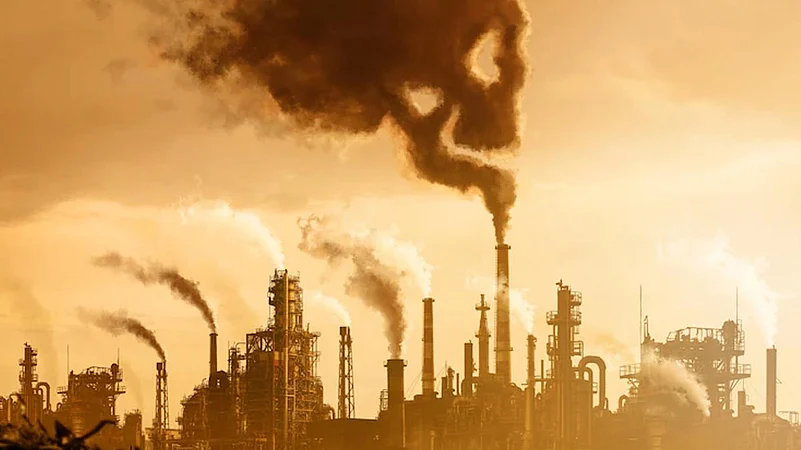
A new study projects global fossil fuel emissions will hit a record 38.1 billion tonnes in 2025, rising 1.1% from 2024.
Despite rapid renewable energy growth, continued reliance on oil and gas is driving the increase, especially in transport and industry.
Scientists warn the trend jeopardises climate targets, urging immediate action to cut emissions and phase out fossil fuel dependence.
Global carbon dioxide emissions from fossil fuels are projected to reach an all-time high of 38.1 billion tonnes in 2025, according to a new study. The rise — about 1.1% higher than in 2024 — comes despite the rapid global expansion of renewable energy.
Researchers say the increase is being driven by continued dependence on oil and gas, particularly in transportation and industrial sectors. While emission growth in major economies like China and India has slowed thanks to renewable adoption, it has not been enough to counterbalance global fossil fuel use.
Scientists warn that the world remains far from meeting its climate goals. To limit global warming below 2°C, emissions must not only peak but start to decline sharply within this decade. The report urges governments to accelerate clean energy transitions and phase down coal and oil
"The new Global Carbon Budget report delivers a clear warning. Fossil fuel emissions are set to reach another record high in 2025 even though renewable energy has grown faster than at any time in the past. Coal, oil and gas use is still rising overall, which means global CO2 output keeps climbing.
This rise comes at a time when the remaining space to keep warming under 1.5 degrees Celsius is fading quickly. At the current pace, that limit will be breached within a few years. Countries with large vulnerable populations, including India, face the greatest risks once that threshold is crossed. These include stronger heat waves, lower crop yields and unstable rainfall patterns that strain public health and food security.
India has made progress in solar installation, cleaner power systems and energy efficiency. Yet total emissions continue to grow because the demand for energy is increasing even faster. Expanding cities, new industries and infrastructure needs keep adding pressure to the grid," said Dr. Eilia Jafar, Humanitarian and Development Professional.
Further highlighting, Dr Jafar said: "The report should be seen as a timely reminder rather than a final judgment. The future remains open, but the window for decisive action is becoming smaller every year. India and other major economies will need to move faster than they once believed possible if they want to avoid deeper climate stress in the years ahead."
The International Energy Agency warns in another new report, which tracks the energy transition and global emissions, that under the current policies countries around the world are following to meet their energy needs, the planet will warm nearly 3 degrees Celsius by 2100.
Even as nations follow through with more aggressive clean energy policies that they have indicated they intend to pursue — with coal and oil demand peaking by 2030 — warming would still be close to 2.5 degrees, according to the report.
That rapid pace of warming plays out despite a scale-up of renewable energy around the globe and a surge in electric vehicle sales.
Driving warming down to 1.5 degrees Celsius by 2100 at this point, according to the IEA report, would require considerable changes in the types of energy the world uses, as well as mass deployment of nascent carbon capture technologies that have so far proven technologically difficult, politically contentious and extremely costly to scale up.
And recent years have seen record-high fossil fuel emissions, leaving some experts hesitant to predict a peak in output, even amid this shift to other sources of clean energy.



























